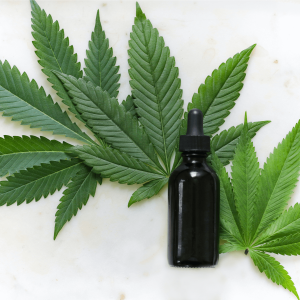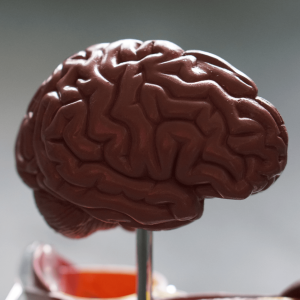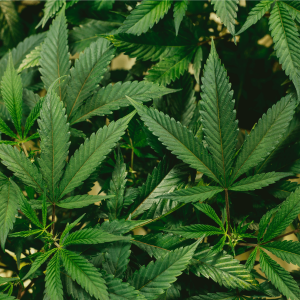It seems as though almost all recent cannabis products advertise the addition of Cannabinol (CBN). But what is CBN?
The latest cannabinoid to take the industry by storm, CBN is all the rage. In this blog, we’re diving into the details surrounding this latest craze.
From its medical benefits and uses to its potential risks and side effects, keep reading for everything you need to know about cannabinol (CBN).
CBD vs. CBN vs THC: Similarities and Differences
You’re likely already familiar with other cannabinoids such as THC and CBD. After all, these are the two most widely recognized cannabinoids found in the cannabis plant.
THC is known to be the main psychoactive compound. However, unlike THC, CBD is non-psychoactive, meaning that it does not produce those typical ‘high’ effects that we all know and love.
But what is cannabinol? And how does it fit in with the other cannabinoids?
Cannabinol, the chemical structure C21H26O2, is a chemical compound made from THCA (among the primary cannabinoid metabolites in THC) and is surprisingly found in the Cannabis sativa plant. And we say ‘surprisingly’ because CBN is typically regarded as a sleep aid — but more on that later.

Similar to CBD, CBN is typically consumed for its range of therapeutic benefits rather than psychoactive effects. And though CBN is very mildly psychoactive, the compound doesn’t even begin to compete with THC. In fact, when THC degrades, it transforms into cannabinol (CBN). Some sources suggest that CBN is 90% weaker than THC in regard to psychoactivity.
Additionally, both CBN and CBD work by binding to cannabinoid receptors in the body’s endocannabinoid system, which ultimately plays a role in the central nervous system and can alter the functional activities of the immune system by infiltrating immune cells.
CBN: Potential Benefits and Uses
Despite being the first cannabinoid to be discovered, more research in clinical settings is needed to fully understand the uses and benefits of CBN products.
However, the research that does exist paints a positive light on the cannabinoid. In fact, CBN research suggests that CBN has many potential benefits, including:
Sedative and Sleep Aid
CBN is often praised for its potential sedative effect similar to that of stronger sleep aids or other drugs. Some studies suggest that CBN may have a calming effect and could help combat sleep issues.
It may also have muscle-relaxing properties, which can aid in achieving a restful night’s sleep; meaning that you’ll fall asleep faster and stay asleep longer.

Pain Relief
Although more research is needed from national institutes such as the National Cancer Institute, some studies indicate that CBN may have the potential to reduce pain and inflammation. By interacting with the body’s endocannabinoid system, CBN acts as a source of pain management to relieve pain at its very source.
Cannabinoid research conducted by the Faculty of Pharmaceutical Sciences at the University of British Columbia, and published in the Archives of Oral Biology, studied the results of combining CBN with CBD and CBC.
The study revealed that the combinations act as peripheral analgesics for myofascial pain. However, the study was conducted on a rat model and more information is needed in regards to the cannabis drug interactions in humans.
Additionally, recent research reveals that CBN may normalize the intraocular pressure levels in the eye, potentially reducing ocular pain.
Antibacterial and Anti-Inflammatory Effects
CBN has shown promising antibacterial properties, specifically against drug-resistant bacteria such as MRSA, which is caused by a type of staph bacteria.
Additionally, it may possess anti-inflammatory properties, although further research is required to fully understand its full effect on the body and potential applications.
Appetite Stimulation
It’s been suggested that cannabis CBN products have appetite-stimulating effects. This could be especially beneficial for individuals experiencing a loss of appetite due to certain medical conditions or treatments.
Neuroprotective Properties
Research suggests that CBN may have neuroprotective properties, meaning it has the potential to protect the brain and nervous system from damage or neurodegenerative diseases such as early stages of multiple sclerosis (MS).

Taking CBN as a Sleep Aid
Struggling to catch some z’s? Skip the other medications because a CBN product may be the answer.
The indica cannabis plant is notorious for its heavily sedating properties, with each of the cannabinoids playing a role in the overall entourage effect — in conjunction with THC and terpenes, of course.
CBD, for example, could help to ease anxiety, stabilize mood, and address general inflammation. However, CBN has shown more of an effect in regards to the cannabinoid’s specific contributions to sleep and an overall decrease in anxiety.
Potential Risks and Side Effects of CBN
Though more research is needed to fully understand the potential risks and side effects of regular CBN consumption, some experts suggest a variety of negatives, including:
Sedation
While some stoners may specifically seek out strains for their sedating effects, others may steer clear of the couch-lock typical to strains from the indica cannabis plant.
Given that CBN is typically regarded as a powerful sleep aid, it could lead to physical sedation. If you are planning to drive or operate heavy machinery, it would be wise to reconsider smoking a cannabis plant high in CBN.
Cognitive Impairment
CBN’s sedative effects may also impact cognitive function, including memory and concentration. For example, some consumers report feeling groggy after consuming CBN the night before.
It’s recommended to exercise caution when engaging in activities that require mental alertness after consuming CBN.
Drug Testing
Despite its position among the non-psychoactive cannabis cannabinoids, there is a discourse within the world of weed regarding whether or not CBN will show up in a drug test.
Though CBD is not likely to show up in a drug test, CBN is slightly different. If small traces of THC are present in the product you are consuming, it is possible that the compound will stay in your system after processing through the drug metabolism.
With that being said, any sort of drug test could possibly detect its presence and prompt a positive result.
Drug Interactions
Like other cannabinoids found in the cannabis plant, CBN can interact with certain medications.
It is absolutely essential to consult with a physician or a healthcare professional if you are taking prescription medications to ensure there are no adverse interactions when combined with cannabinoids.

Lack of Strict Regulations
Unfortunately, the lack of research into Cannabinol also results in a lack of strict regulations surrounding the cannabinoid.
With that being said, some CBN cannabis products could potentially contain a number of irregularities such as heavy metals, minute traces of THC, or even a higher concentration of CBN than originally labeled.
Cannabis Strains High in CBN
If you’re curious about which cannabis strains contain high concentrations of Cannabinol, we’ve got you covered.

Cannabis strains high in Cannabinol are typically those that have been allowed to age or have undergone certain processes that convert the precursor cannabinoid, THC (tetrahydrocannabinol), into CBN.
Here are a few strains that are known to have higher levels of Cannabinol:
- Afghan Kush: This Indica-dominant strain is known for its relaxing and sedating effects. As the flowers mature, the THC content degrades, leading to higher levels of CBN.
- Bubba Kush: Another Indica-dominant strain, Bubba Kush is often praised for its calming and sleep-inducing properties. With its potential for higher CBN levels, it is often sought after by those seeking deep relaxation and relief.
- Granddaddy Purple: This indica strain is renowned for its potent sedative effects, making it a popular choice for relaxation and sleep. As it matures, Granddaddy Purple buds tend to develop higher levels of CBN.
- Northern Lights: A classic indica strain, Northern Lights is known for its soothing and tranquilizing effects. It has been reported that higher CBN levels have been found in older plants of the Northern Lights variety. Northern Lights is often found in the form of a vape, which requires specific hardware such as the heavy hitters battery.
- White Widow: This balanced hybrid strain has gained popularity in the world of weed for its uplifting and euphoric effects. While primarily known for its high THC content, aging or curing the flowers can potentially result in an increase in CBN levels.
FAQ
1. What is CBN in gummies?
Cannabinol is a cannabinoid often found in cannabis edibles, such as gummies. It’s known to offer relaxing effects that act as a sleep aid.
2. Will CBN make me feel high?
CBN is known to produce mildly psychoactive effects. However, it isn’t typically known to produce the same level of psychoactivity created by high THC strains such as Slurty3 and Mount Zereal Kush.
3. What are the effects of cannabinol?
Cannabinol is known to produce relaxed effects that may lead to eventual sedation for short periods of time. Additionally, CBN is known to reduce pain, soothe anxiety, and stimulate appetite.
4. Does CBN help with anxiety?
More research is needed to discover all of the potential benefits. However, there are numerous sources that suggest that CBN may help with anxiety, chronic pain, and even depression.
5. What does CBN do for sleep?
Many sources suggest that CBN may act as a sleep aid by encouraging relaxation, drowsiness, and eventual sedation. Many avid consumers share that CBN not only helps them to fall asleep but allows them to stay asleep. This helps them to achieve more restful sleep.
6. What is the difference between CBD and CBN?
The main difference between CBD and CBN lies in its effects. For example, CBD is non-psychoactive while CBN is mildly psychoactive. Additionally, CBN offers ultra-relaxing, even sedative effects, whereas CBD does not.

 Rewards
Rewards




